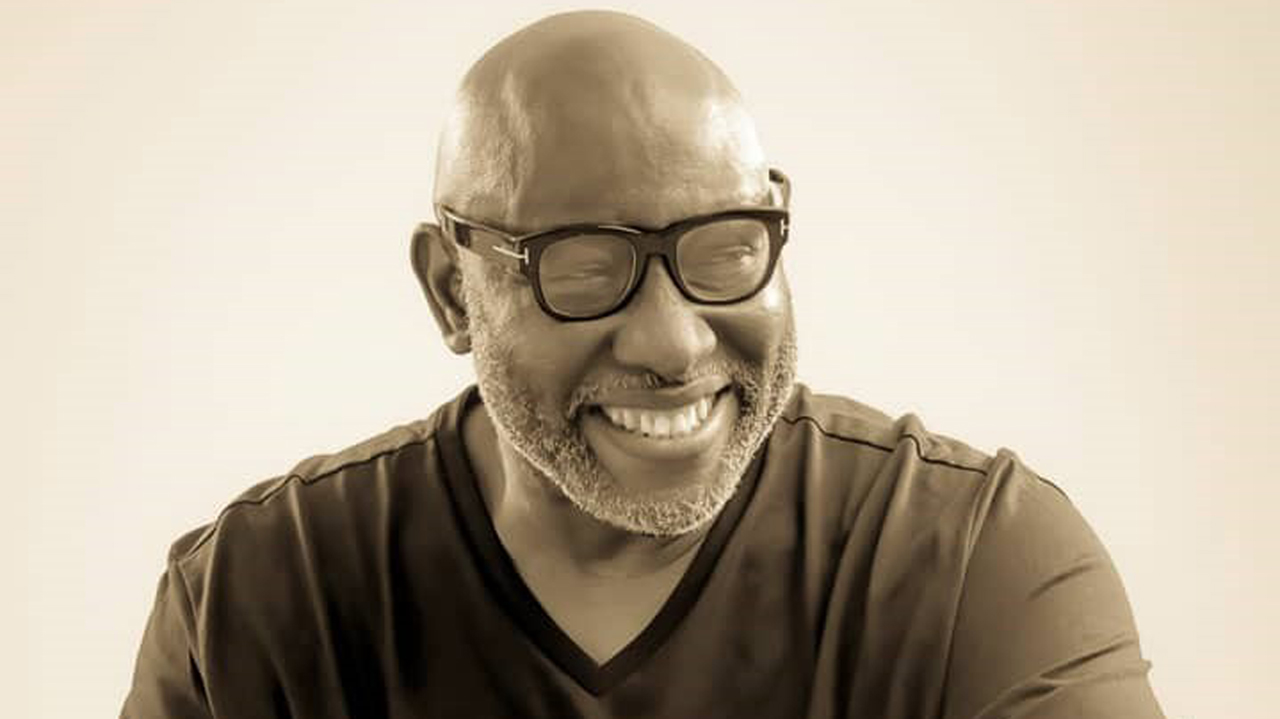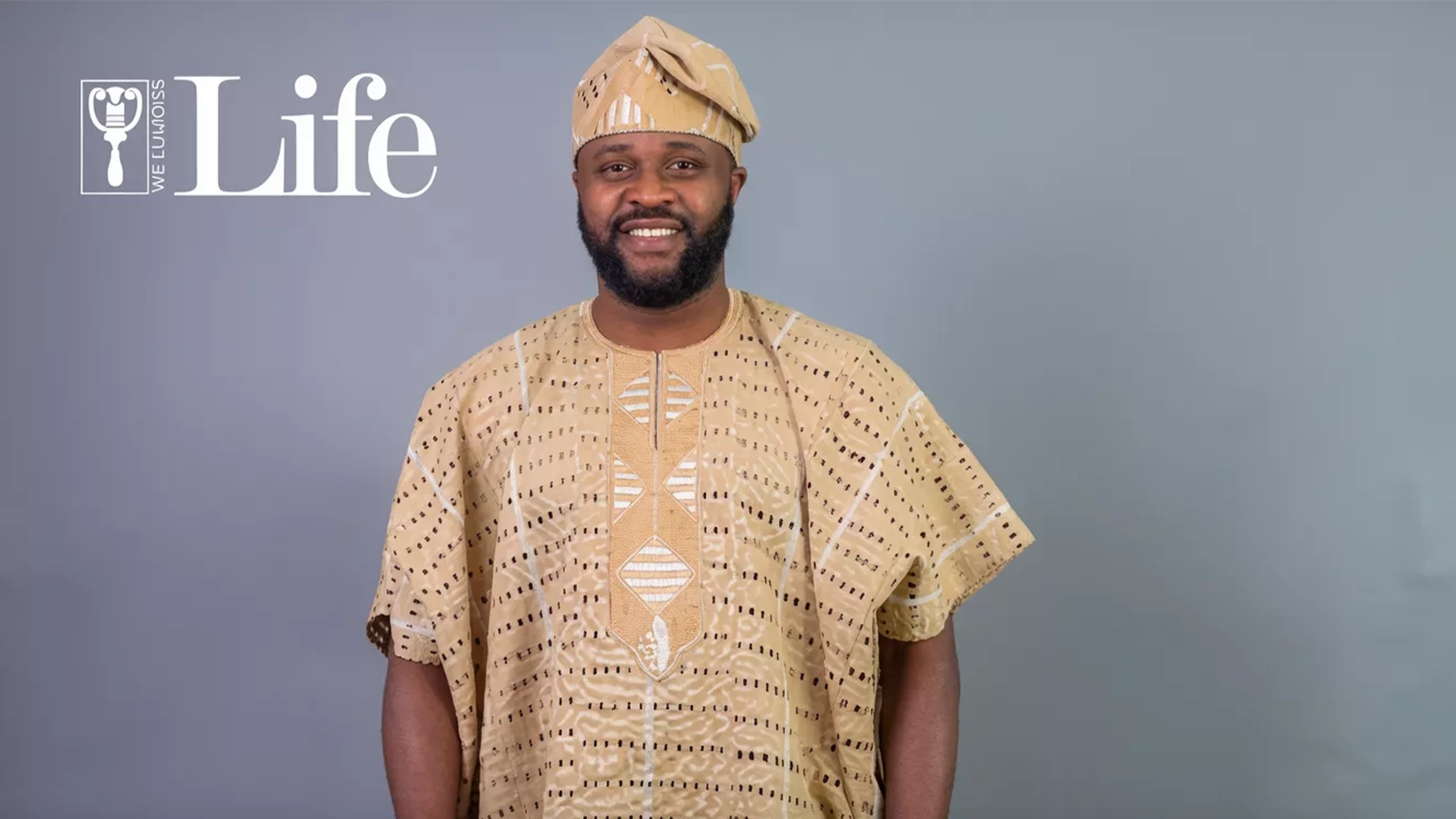
As Vice President, Corporate and Government Relations, Olam Nigeria, he doubles as ‘commercial diplomat’ and represents both the Olam Group and his home country, Nigeria at national, regional and international levels, particularly in the agri-business space.
Passionate about the African continent and its people, Ade, as he is fondly called, was born to a diplomat father, who exposed him to travelling at an early age. He spent a greater part of his childhood in different parts of the world, where he built friendships that cut across multilingual and multicultural boundaries.
His family returned to Nigeria in the early 1980s to the warmth of people whose relationships according to him were largely devoid of ethnic or religious colouration. He attained a golden age last month.
Reminiscing on the lessons life has taught him, Ade said: “Life has taught me many lessons — humility, benevolence, selflessness and so many other things. Getting to the fifth floor as I call it and celebrating 50 is a major milestone.
“It’s been a humble experience, a journey of ups and downs, but I thank God at the end of the day. Like I always say and a lot of people know me with my mantra: ‘For God, Family and Country. I’m extremely grateful to God, who has spared my life these 50 years and made it possible for me to celebrate my golden jubilee. I look forward to many more decades in good health,” he added.
But for the golden ‘boy’, the celebration took a philosophical turn as Adefeko reflected on what “should have been or what should be and what has been.” At the end of the day, he remembered mostly the good times.
From the onset, his dreams and goals of life were clearly defined. “I have always wanted to be seen as somebody who is contributing to humanity, growth and development of the country through whichever prism of influence that one operates from.
“As part of my life philosophy, I don’t dwell on negativity, instead, I radiate positivism. I don’t see challenges, I look at opportunities. I presently operate in the Agricultural value chain space with my company OLAM, as Vice president Corporate and Government Relations where I superintend over communications and stakeholder relations for the group, and prior to that, I had worked with British American Tobacco as Area Head of Communication and Regulation for Nigeria, Niger, Benin and Togo. My experience spans FMCG, Pay television, Banking, and Information Technology.
“My career haven varied; I had a lot of experience and what you call in credit depth and breadth. For me, until you die, you continue to have the ambition to be this or that. And like I said earlier, my lifelong ambition has always been to contribute to humanity and to development of mankind. Some people decide to do that through their respective spheres of influence, and my sphere of influence as it is right now is agriculture or what you can call commercial part of the bush.”
His ultimate goal is to become “a global ambassador for development.” Even the pursuit of this goal has a sequence that follows a bottom-up approach as he desires to rise through the rank from being a national, regional and continental ambassador before capping it up with global apparel.
Going to ‘Unity School’ — Federal Government College in his early life has helped to shape this perception. “So, I don’t see Hausa, Yoruba or Igbo. I speak the three languages very well, and that makes me very national in my outlook.”
The consummate commercial diplomat, as he likes to be addressed, does not have time for ethnic, tribal, and religious sentiments, which he considers as ethnic cleavage discussions. “I once told a friend that when politicians are sharing money, nobody asks where he or she comes from, but when it is time to share plum positions or jobs that is when you hear them say he is from south-south, south-east or he is from the north.
“The same enthusiasm they exhibit when ‘sharing money’ should also be used to accept that we all have a collective patrimony, and we must make sure that it is a patrimony that works for us all.
“People say I tend to discuss too nationally and broadly. That is because I’m a very selfless person and not a selfish person. I’m one who lives on the goodwill and I have very strong goodwill bank. People on the credibility of my goodwill bank get a lot of things done.
“You cannot teach a man how, to be honest, you can teach him how to do or be anything else. It is innate, so you are either honest or you are not. So, for me, integrity is very important and you must bring it to bear in everything you do.”
At 50, Adefeko believes he has impacted society greatly. “Without sounding too immodest, I will say, to a large extent, that I have contributed immensely through my different endeavours — writings, travels, interactions with people. I’m not saying that I deserve a national honour but if it comes my way I will not be surprised. There is a lot I do underground for the country. There are different fora where I represent my company, Olam and I talk about my country, Nigeria. So I’m always vouching for my country.
“For those who know me very well, I never speak ill of Nigeria outside its shores because there is no point exposing our dirty linen. Internally, amongst ourselves, we can discuss and argue about how to make things better here but you will never see me denigrate the country outside our shores.
“People often say I’m Pro-government, Pro-APC, they miss the point. Once a government has been appointed to power, you don’t have a choice but to be pro that government because it is going to be there, whether you like it or not for four years or eight years as the case may be. So we can collectively join hands and help build the country in our little way.”
He counters the perception that one must in government to offer service that stimulates national development. “That is not the truth and it is a wrong notion to hold. I’m not in government but in my conversations with government, in my capacity as Chairman NACCIMA Agricultural Trade Group, I have always advocated for a better deal for Nigerians.
“People will say Ade you have a political ambition, but that is a fallacy, I do not have any. Never say never; I do not intend to be governor, senator, member of House of Representatives or State Assembly, or anything around the political office. People should not get me wrong. I’m 50 now; never say never, only God knows what he has in stock for me. I live history at a time; I don’t want to sit down and be futuristic saying I want to be this or that.
“If the President and commander-in-chief in his wisdom decided to appoint me a Minister of the Federal Republic or an Ambassador of Nigeria to a country or head of a parastatal of a government agency, so be it. He cannot appoint me to be a governor, a senator or Reps member; neither will he appoint me to be a member of the State Assembly.
“I don’t think I would want to run for any elective office because it is too expensive a venture! Really, I don’t have the resources. I would rather channel the resources to charity and any pet project that impacts humanity. I’m part of pet project now that has to do with healthcare delivery. I lost my father sometime this year and part of the reason was lack of proper medical care from the health sector.
“It was after that I resolved to dedicate my life to support the healthcare sector through any means, which is why I now serve on a board called Mobihealth, as a director. It is a telemedicine outfit that addresses the needs of the poor and needy in primary health care. Those are the kind of things that I decide to support; charities that have to do with different empowerment — the girl-child education, gender equality, mental health and the likes.”
He has a unique perspective on being poor or wealthy. He explains, “the poor are not poor because they want to be poor, it is circumstantial,” as he underscores what he terms inclusive prosperity. “When we prosper together with the sense of inclusion, we are then better off as a people,” he stated.
As Vice President, Corporate and Government Relations, Olam Nigeria, Adefeko’s job entails communication with various publics and stakeholders and, sometimes, ‘lobbying’. According to him, “people tend to get the conceptual meaning of lobbying wrong, they often think it is all about giving bribes to X and Y. No, it is about influencing policies and helping take positions that will be for the overall good of the nation.
“I have been playing in the agricultural sector in the last eight years and my company, Olam, which is at the avant-garde is the largest Agric-business company in Nigeria; I might be wrong but to the best of my understanding, I believe we are. Some companies do other things but add agriculture as part of the mix. That aside, we are the largest exporter out of Nigeria after oil and gas.”
He explained that Olam has the largest rice farm and mill in Nigeria and Africa with its state-of-the-art investment facility valued at $150 million and situated on 14,000 hectares of land in Rukubi, Nasarawa State.
According to him, the group own OK Foods, which is into biscuits and confectionaries. It recently acquired Dangote Flour Mill, as part of its efforts to increase the wheat milling and flour business value chain.
“We have an animal feeds plant in Kaduna, which is about $100 million worth; there is another $50 million worth fish feed company or what you call aqua-culture in Ilorin, Kwara State. Also in Ilorin, we have a cashew processing facility. In Shagamu, Ogun State, we have a Sesame processing plant, which processes for export. The plant is valued at about $10 million.
“As you know, Sesame seeds have so many potential health benefits and have been used in folk medicine for thousands of years. They protect against heart disease, diabetes, and arthritis. It is a good source of fibre well known for supporting digestive health. It consists of 15 percent saturated fat, 41 percent polyunsaturated fat, and 39 percent monounsaturated fat.
“Research has shown that eating more polyunsaturated and monounsaturated fat relative to saturated fat may help lower your cholesterol and reduce heart disease risk. Sesame seeds are high in magnesium, which may help lower blood pressure. High blood pressure is a major risk factor for heart disease and stroke.”
He expressed satisfaction having grown to become a global executive that started somewhere in Nigeria 30 years ago. “As a matter of fact, my birthday month which is November is the birthday month of Olam, and incidentally, Olam is 30 years old this year. So, when people say Ade you are lucky, I often ask them what is luck? I have been doing what I’m doing for the past 30 years from my own sphere of influence just like Olam is doing in its own sphere of influence too. I joined Olam when I was 43, so I have spent about eight years with the company. I’m celebrating 50 and Olam is celebrating 30 years. Take away 30 from 50 and see what it gives you
“People don’t know when and how we started, they only see or they are seeing the results now and they say we are lucky or that I’m lucky. We have worked hard, we have invested. People think Nigeria is one of those countries where you bring your briefcase and just go your way,” he retorted.
Olam, the Avant-Garde company in the Agri-business space, he boosted, has remained a key partner of the national food security agenda. “The incumbent administration told us when they came into power that they didn’t want importation of rice anymore into the country.”
He noted that before that policy decision, Olam had stopped rice importation while focusing on backward integration by investing in the rice value-chain with a farm and mill in Rukubi, Nasarawa State.
He commended the government for promoting local production of rice. “Seven million tonnes of rice is what Nigeria consumes and Olam produces about three million tonnes. About 2.5 million tonnes (parboiled rice) get smuggled into the country from Thailand through the Benin Republic. The Beninoise don’t eat parboiled rice, so the rice ends up in Nigeria by smuggling through the Seme and Idi-Iroko borders.
“Smuggling is not good for any economy because those who engage in it don’t pay duty (tax), and they don’t have anything to lose. Those who engage in local production are undermined by the act. Let’s assume we sell our locally produced rice at N5, they will sell theirs at N2. The masses due to the purchasing power will buy from them rather than buy from ours. We buy paddy in the open market, which is expensive. These smugglers don’t know what paddy is all about; they don’t farm and neither do they mill, instead, they buy the finished products and smuggle them into the country.
“The government closed the borders without prior announcement, which was good because they took everybody unaware. Have you not noticed that the proliferation of small arms, as well as the 2.5 million tonnes of rice that hitherto smuggled into the country, have reduced drastically.
“People have asked what my stance is on the issue, and for the government to open the borders, particularly for the yuletide season. I have always and will always tell them that the government should be allowed to do what it needs to do and they have done what needed to be done. However, local productions must have to be wrapped up, and this cannot be achieved by legislation; we have to work towards it.
“As a company, Olam always keys into the government policies and programmes and for us, what we want is policy consistency, not policy hiccups. What has happened in the past is that a government comes in for four years and says it wants to do Xyz and when it leaves another one comes in and discontinues such lofty polices, which often time are painstakingly formulated by a combination of experts and government representatives. As a corporate entity, we are tired of all that.”
According to him, right now there is a bit of stability in such directions, adding that people talk about government as if they are not part of it. “Government is you and I, all of us; it is a phantom ghost. Whatever you tell or advice government to do is expected to be some of the things you are doing in your own sphere of influence. Government is there for the people; it doesn’t have to be popular and that is the mistake we make as people.”
However, he urged the provision of adequate funding for production and not consumption. “Nigeria is found of consumption rather than production. The world has moved; we are now in the fourth industrial revolution where things are being and will be done through artificial intelligence, robotics and all kind of things.
“People are using drones to plant. For instance, in Olam rice farm in Rukubi, we are using these technologies. We have a crane that does spraying, combines harvesters and about 18,000 growers that we support. The anchor borrowers’ initiative by the Federal Government through the Central Bank of Nigeria (CBN) is a good intervention measure. Some corporates are taking advantage of the programme by getting the money and give the same to some farmers. Some who have taken the money is yet to pay back but that is left for the CBN to deal with.
“The programme has been a success and whatever anybody has to say, we must give kudos to the incumbent government for implementing the programme. I don’t like to criticize for the sake of it; give credit when and where it is due. The government will do what it has to do, but people must also understand that the government is not a charity.”
As a polyglot, Adefeko says he has always been on the move since 46 years ago, thereby traversing 45 countries of the world so far. “I have been to different parts of the world and speak some of the languages. I speak French, Portuguese, German, Swahili, Spanish, and Ndebele apart from our own Yoruba, Igbo, Hausa and little of Egun.
“For me, when you hear and speak people’s language, it makes it easier for you to feel very much at home. Because my company, Olam has presence in 25 African countries and there is always a session for me to speak about the company at different fora simply because I’m a thought leader and a speaker.”
Adefeko derives happiness in looking at the other man and seeing that he is happy, “that I have helped in one way or the other at the point of need. When I do this I’m happy because I am for inclusive prosperity.
“Whatever position you find yourself, savour it but note that it is God’s divine providence. Help those who are in need; the poverty index in Nigeria is very high. That woman selling groundnut, orange, tomatoes and pepper on the street, her total inventory is put at N5000, which is what some people use as money for recharge. From that inventory, she takes care of her family, cooks for husband and children, sends them to school, pay her rent and taxes.
“This is why I commend the social investment programme of the current administration. Yes there may be one or two areas that need to be fine-tuned, but we must understand that the vulnerable are vulnerable whether we like it or not; we have to take care of those of them amongst us because a day will come when they will wake up and say the elites have failed us and we must deal with them.”
Despite his busy schedules, Adefeko still finds time to relax, which he does by spending quality time bonding with his family, particularly his kids; hence his hashtag ‘for God, Family and Country.
“My most cherished family tradition is bonding with my family; whenever I come back from travels and my kids jump on me shouting, “daddy, daddy” and every one of them wanting to have a feel of me and asking me to take them to one place or the other. Those are my most cherished family tradition. Every time I spend with family is fun and bonding moments for me. It is not quantum or length of the time but the quality.”
Growing up, he developed a passion for artistic expression as reading newspapers, listened to the news on radio and TV, and did the composition of poems.
“I started writing poems at a very early age, so my writing skill was honed right from childhood with the encyclopedias my father bought for us. I love watching sports and documentaries and love travelling. I am one of those kids who never like comics like Captain America, even though I read them sparingly.
“Apart from politics which I don’t write on, I write on other spheres of endeavours like an investment, trade, and sports. I refrain from politics because I don’t want to be involved in any political discussion. My political affinity or interest is personal to me.”
For Adefeko, retirement is no way near, as he says: “I know when I will retire. I will retire when God and my body tells me. I don’t plan for such things. I live everyday as it is and continue to pray and hope that God keeps me. I’m not one of those who are exercise freak, I’m a boisterous person, so I expend a lot of energy.
“I’m healthy not because I made a deliberate attempt but by the mercies of God. Those that know me will tell you how free spirited I’m. I bear no malice against anybody and usually walk away from those arguments that often lead to squabbles.”






